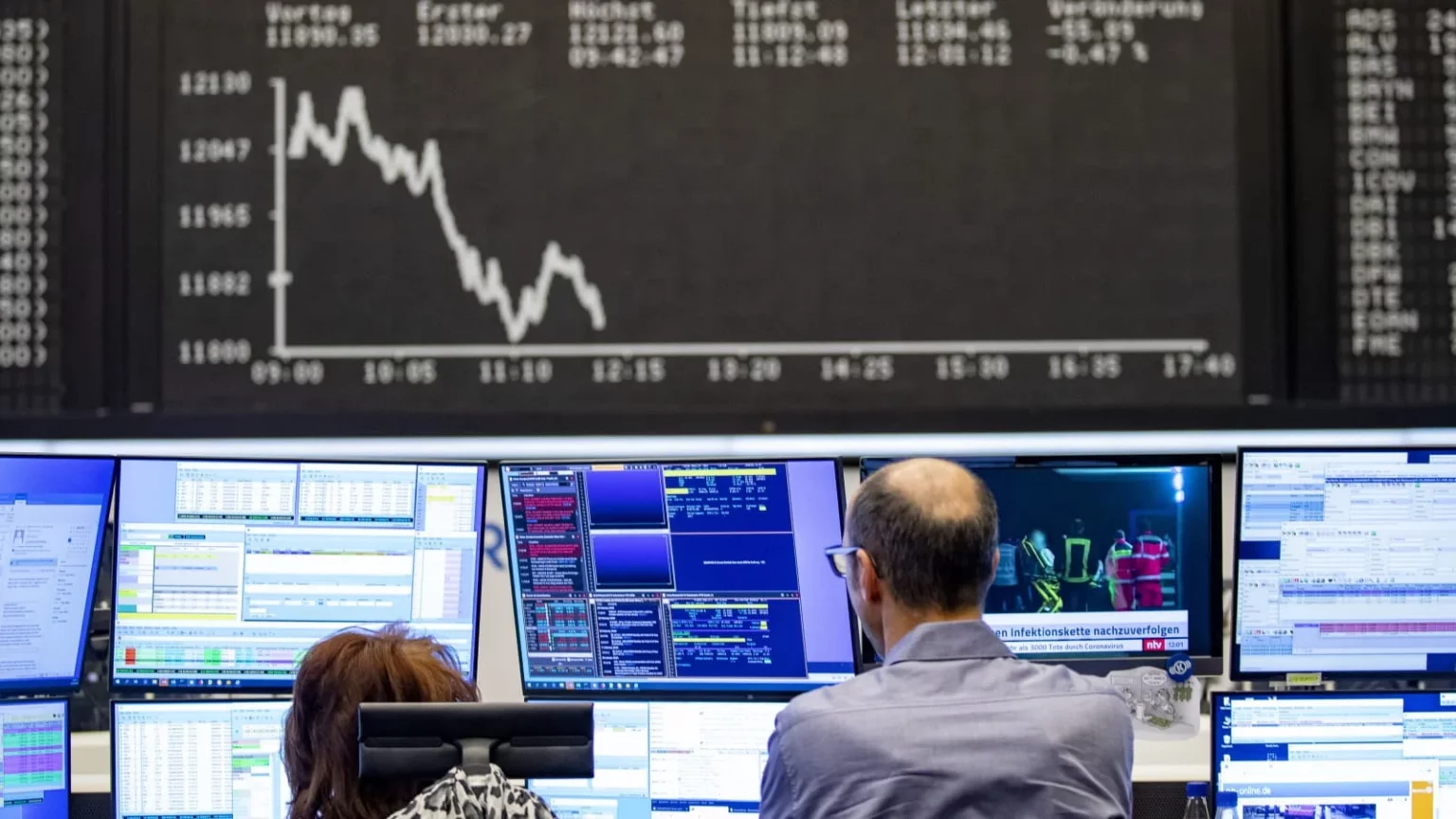European stock markets have exhibited divergent reactions in the wake of a global decline in the recent stock rally on Wednesday. The fluctuating stock prices, causing fluctuating market highs and lows, have raised concerns among businesses about the lack of stability in the market.
As trading reached the halfway point, London managed to gain ground, while Frankfurt and Paris faced declines. Meanwhile, in the Asian markets, Tokyo concluded on a positive note, whereas Shanghai and Hong Kong remained relatively stagnant. Simultaneously, oil prices surged due to political unrest, with Gabon, a country rich in oil, experiencing a military coup.
The previous day’s global equities rally was prompted by a US job openings report that fell below expectations, easing concerns about potential interest rate hikes by the Federal Reserve.
This had a direct impact on the dollar’s value, causing it to weaken against both the euro and the pound.
Susannah Streeter, Head of Money and Markets at Hargreaves Lansdown, noted that the signs of a cooling US economy have sparked hopes that the Federal Reserve would reconsider aggressive interest rate hikes.
China also took center stage, following a report that the country’s major state-backed banks were planning to reduce mortgage and deposit rates. This move aims to provide support to China’s struggling property sector.
Wall Street witnessed an impressive surge on Tuesday, led by strong performances in Amazon and Apple shares. This rebound came in the aftermath of the Labor Department’s Job Openings and Labor Turnover Summary (JOLTS) report, which fell significantly short of predictions.
Another report revealed a dip in consumer confidence due to concerns over employment, escalating interest rates, and persistent inflation.
These reports have emerged just ahead of critical data releases, including the Fed’s preferred inflation gauge, the personal consumption expenditures price index, and figures related to non-farm payrolls and factory activities.
Experts believe that the weaker JOLTS figures will provide the Federal Reserve with the leeway to hold off on further interest rate hikes, given that interest rates are already at a two-decade high to combat inflation.
The moderating rate expectations led to a drop in US Treasury yields and even spurred investors to revise their expectations for a rate cut, moving it from July to June, as reported by Bloomberg.
Matthew Simpson, from City Index, emphasized that while layoffs remained significantly above the long-term average at 8.8 million, it is the rate of change that holds more significance for the markets. With job openings declining to a 28-month low, the indication is that the labor market is indeed softening.
Key Stock Figures:
- London – FTSE 100: Gained 0.3 percent at 7,483.61 points
- Frankfurt – DAX: Declined by 0.4 percent to 15,871.15
- Paris – CAC 40: Decreased by 0.4 percent to 7,343.33
- EURO STOXX 50: Fell by 0.4 percent to 4,307.23
- Tokyo – Nikkei 225: Increased by 0.3 percent, closing at 32,333.46
- Hong Kong – Hang Seng Index: Remained flat, closing at 18,482.86
- Shanghai – Composite: Maintained its position, closing at 3,137.14
- New York – Dow: Surged by 0.9 percent, closing at 34,852.67
- Euro/dollar: Strengthened to $1.0893 from $1.0884 on Tuesday
- Pound/dollar: Rose to $1.2665 from $1.2644
- Dollar/yen: Increased to 146.34 yen from 145.87 yen
- Euro/pound: Declined to 85.98 pence from 86.05 pence
- Brent North Sea crude: Climbed by 0.6 percent to $85.99 per barrel
- West Texas Intermediate: Gained 0.7 percent, reaching $81.73 per barrel




